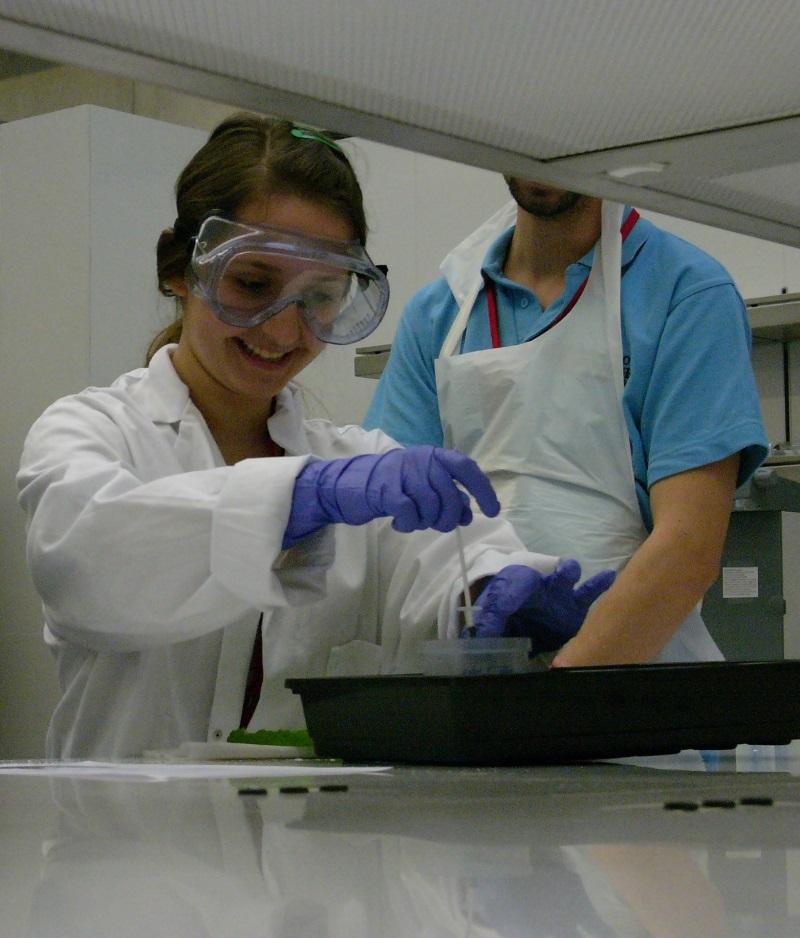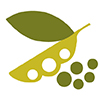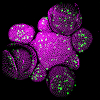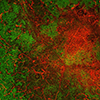
SLCU aims to inspire the next generation of plant scientists.
SLCU was pleased to host participants in the Admissions Office’s Realise programme for an afternoon of activities. Dressed in lab coats and using research equipment, children and their adult companions set up and ran an experiment using plant infiltration, a technique used by researchers and technicians daily at SLCU. Guided by Thomas Rey and Sandra Cortijo, they noted differences in pressure needed to infiltrate leaves from watered and unwatered plants and the top and bottom of leaves. They drew conclusions on leaf structure and how plants react to drought conditions. Some participants mastered the technique very quickly, outdoing experienced researchers.
Another activity on offer involved identifying plant parts by looking closely at a range of everyday vegetables, under the guidance of Siobhan Braybrook. Practicing fundamental scientific skills of observation, measurement, and using agreed scientific terms, participants were asked identify which plant they had in front of them and which parts were present, missing or modified due to human selection. They were asked to consider which part of the plant humans eat- that brussel sprouts were side shoots of a much larger plant came as a big surprise! The exercise led to discussions on how plants underlie virtually every ecosystem on earth, and how much of a human’s diet is derives from them (yes, even donuts!) and just how much agriculture has driven change in the shape plants over time. One adult commented that they never expected to see a room full of 11-14 year-olds so fully absorbed by broccoli and cabbage.
SLCU is keen to generate enthusiasm for higher education in general and plant science in particular, and is pleased to support the University's Realise programme for children in care. It is hoped events like this will help encourage and guide more of them towards university. This particular group of children were committed, engaged and full of enquiry; Siobhan noted that 'I have never had such enthusiastic students!' A participant wrote that the day had 'encouraged me to be a scientist'; we are delighted that our programme may have played a part in helping this aspiration to become reality.





